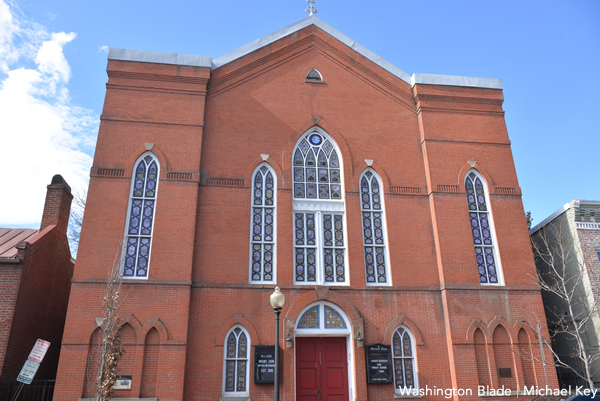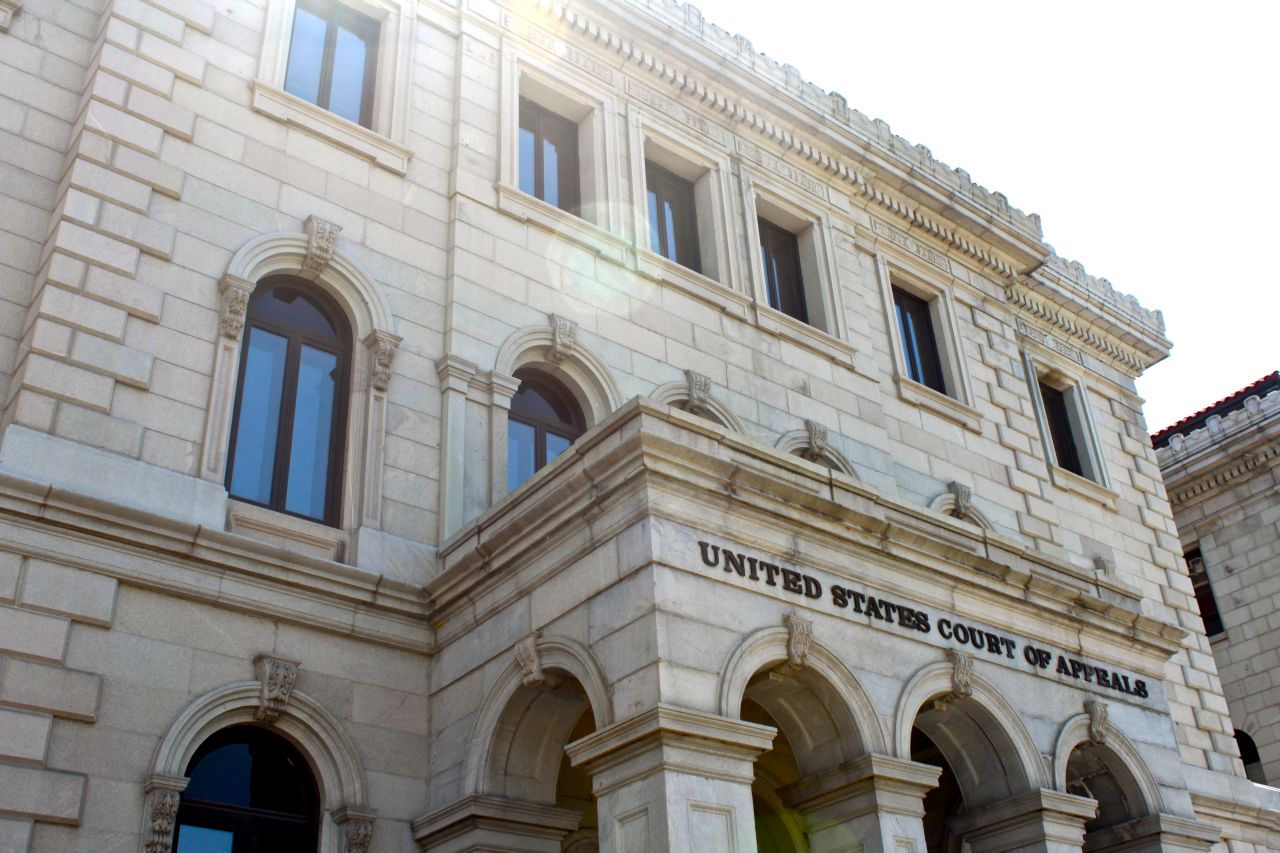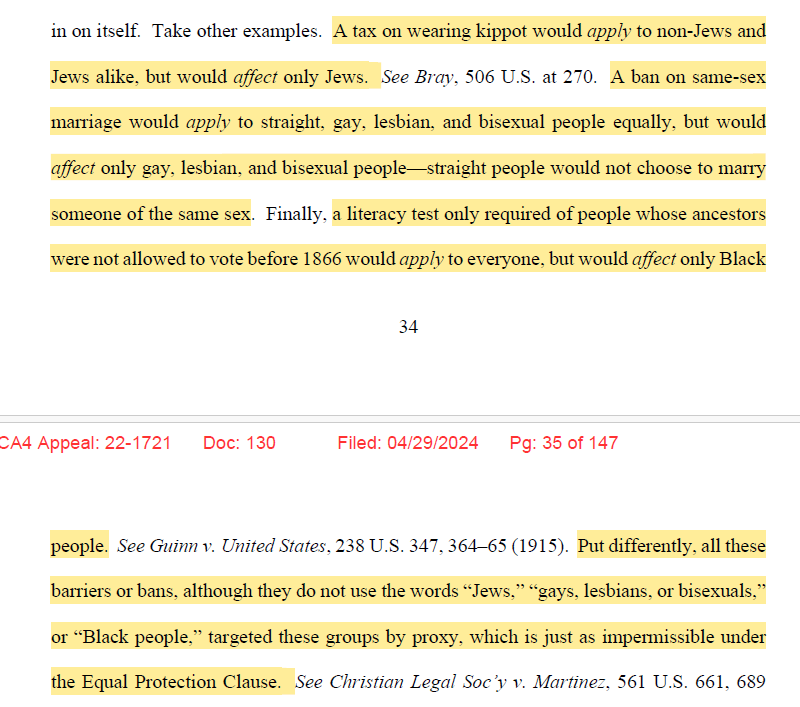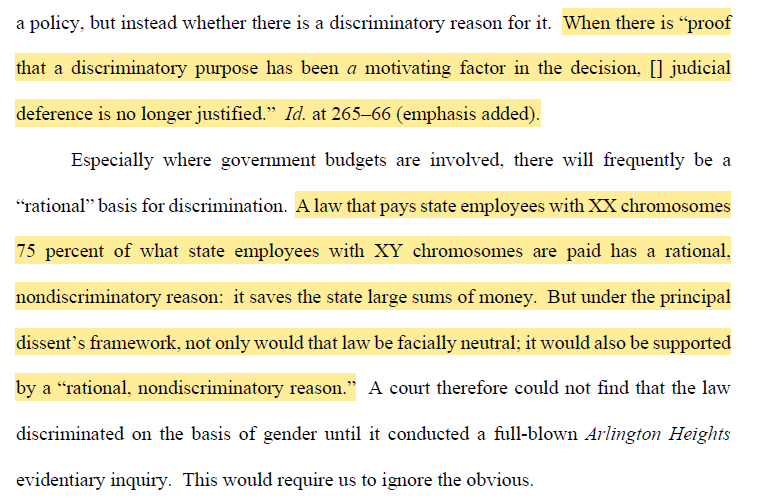National
Legal challenge to ‘Don’t Ask’ goes to court
Two-week trial to feature discharged service members

Another avenue for ending “Don’t Ask, Don’t Tell” will open up next week with the start of a trial over the constitutionality of the ban preventing openly gay, lesbian and bisexual people from serving in the U.S. armed forces.
On Tuesday, the U.S. District Court in the Central District of California will begin to hear testimony in what’s expected to be a two-week long trial in the case of Log Cabin v. United States. Presiding over the trial will be U.S. District Court Judge Virginia Phillips.
The case challenges the constitutionality of “Don’t Ask, Don’t Tell” on the basis that it violates the due process and freedom of speech rights of openly LGBT service members.
R. Clarke Cooper, executive director of the Log Cabin Republicans, said his organization is pursuing the lawsuit — initially filed in 2004 — as part of an effort to “conduct multiple operations to achieve victory” in ending “Don’t Ask, Don’t Tell” as with a military campaign.
“We are lobbying Republican members of Congress, have an active court case going to trial next week and are consulting with the Department of Defense,” he said.
The case is reaching its trial at the same time legislation is advancing through Congress that could put an end to “Don’t Ask, Don’t Tell.”
Phillips agreed last week to hold the trial. The lawsuit is proceeding despite multiple requests to stay the case from the Obama administration, which is defending “Don’t Ask, Don’t Tell” in court.
Representing Log Cabin during the trial is Dan Woods, an attorney for White & Case LLP. He said his plan involves presenting a variety of evidence.
“It is evident from the evidence we’re going to put on that it is applied selectively, it is applied more in times of peace than in times of war,” Woods said. “It is quite clearly the case that most other countries with militaries comparable to ours allow homosexuals to serve and have no problems with lifting bans on homosexuals serving.”
Woods said seven expert witnesses at the trial will offer different perspectives on the harm that “Don’t Ask, Don’t Tell” has caused.
Among those who are set to testify are Aaron Belkin, director of the Palm Center, a think-tank on gays in the military, and Nathaniel Frank, a former senior fellow at the Palm Center who’s now the senior strategist at the LGBT Movement Advancement Project. Both declined to comment for this article.
Woods also said five service members discharged under “Don’t Ask, Don’t Tell” will offer testimony during the trial.
“The thrust of their testimony is not that they individually were unfairly discharged, but that their discharges had nothing to do with their performance or nothing to do with the so-called purposes of ‘Don’t Ask, Don’t Tell,’” he said.
Among the former service members slated to testify is Alex Nicholson, executive director of Servicemebers United and a gay former linguist for the U.S. Army who was discharged in 2002 under “Don’t Ask, Don’t Tell.”
Nicholson, who’s named as one of the parties in the lawsuit, said the trial has been thus far “unusually successful” and noted that the administration’s attempts “to derail the case have so far failed.”
“Because of my public role as a party to this case, my testimony will likely focus on the factors that make me eligible to bring a cause of action challenging this law, including how this law has harmed me personally,” he said.
Also set to offer testimony during the trial is Mike Almy, a gay former Air Force communications officer who was discharged in 2006 and testified before the Senate on the issue.
Almy said Log Cabin had asked him to be a witness during the trial, but noted that he didn’t want to comment on the specifics of the case before the trial begins.
“I’m honored to help tear down this law that has ruined tens of thousands of careers and weakened our national security,” he said. “It is past time our nation catch up with the dozens of other nations that have lifted their bans on gays and lesbians serving openly in the military.”
Woods said other evidence that the plaintiffs will submit includes statements from President Obama saying the law weakens national security.
Assistant U.S. Attorney Paul Freeborne will represent the Obama administration in court. Woods said he was told the administration won’t present any witnesses during the trial or any evidence other than the congressional testimony leading to the enactment of “Don’t Ask, Don’t Tell” in 1993.
A spokesperson from the Justice Department deferred to the administration’s earlier filings in the case in response to a Blade inquiry about how the administration will defend “Don’t Ask, Don’t Tell” in court.
Woods said he’s “optimistic” that the plaintiffs in the case “will do well and win” the lawsuit. He noted Phillips determined that the heightened scrutiny from the U.S. Ninth Circuit Court of Appeals ruling in Witt v. Air Force in 2008 would apply in the case.
Woods said the application of this precedent will “have a major impact” on the case because the government would have to show it’s advancing an important interest with “Don’t Ask, Don’t Tell.”
Additionally, he said the administration would have to prove the intrusion of “Don’t Ask, Don’t Tell” on LGBT people furthers that interest and is necessary for that interest.
“I don’t think the government can prove that and I think we can show that the government cannot meet that standard by the evidence we intend to put on,” he said.
Despite his optimism, Woods said he couldn’t offer a timeline for how long the case would need to proceed. He noted that Phillips will need to take “a little while” to write up her ruling following the completion of the trial.
“If we do win, we’re going to ask to declare this law unconstitutional and to enjoin the government from enforcing it ever again,” Woods said.
National
United Methodist Church removes 40-year ban on gay clergy
Delegates also voted for other LGBTQ-inclusive measures

The United Methodist Church on Wednesday removed a ban on gay clergy that was in place for more than 40 years, voting to also allow LGBTQ weddings and end prohibitions on the use of United Methodist funds to “promote acceptance of homosexuality.”
Overturning the policy forbidding the church from ordaining “self-avowed practicing homosexuals” effectively formalized a practice that had caused an estimated quarter of U.S. congregations to leave the church.
The New York Times notes additional votes “affirming L.G.B.T.Q. inclusion in the church are expected before the meeting adjourns on Friday.” Wednesday’s measures were passed overwhelmingly and without debate. Delegates met in Charlotte, N.C.
According to the church’s General Council on Finance and Administration, there were 5,424,175 members in the U.S. in 2022 with an estimated global membership approaching 10 million.
The Times notes that other matters of business last week included a “regionalization” plan, which gave autonomy to different regions such that they can establish their own rules on matters including issues of sexuality — about which international factions are likelier to have more conservative views.
Rev. Kipp Nelson of St. Johns’s on the Lake Methodist Church in Miami shared a statement praising the new developments:
“It is a glorious day in the United Methodist Church. As a worldwide denomination, we have now publicly proclaimed the boundless love of God and finally slung open the doors of our church so that all people, no matter their identities or orientations, may pursue the calling of their hearts.
“Truly, all are loved and belong here among us. I am honored to serve as a pastor in the United Methodist Church for such a time as this, for our future is bright and filled with hope. Praise be, praise be.”
Federal Government
Republican state AGs challenge Biden administration’s revised Title IX policies
New rules protect LGBTQ students from discrimination

Four Republicans state attorneys general have sued the Biden-Harris administration over the U.S. Department of Education’s new Title IX policies that were finalized April 19 and carry anti-discrimination protections for LGBTQ students in public schools.
The lawsuit filed on Tuesday, which is led by the attorneys general of Kentucky and Tennessee, follows a pair of legal challenges from nine Republican states on Monday — all contesting the administration’s interpretation that sex-based discrimination under the statute also covers that which is based on the victim’s sexual orientation or gender identity.
The administration also rolled back Trump-era rules governing how schools must respond to allegations of sexual harassment and sexual assault, which were widely perceived as biased in favor of the interests of those who are accused.
“The U.S. Department of Education has no authority to let boys into girls’ locker rooms,” Tennessee Attorney General Jonathan Skrmetti said in a statement. “In the decades since its adoption, Title IX has been universally understood to protect the privacy and safety of women in private spaces like locker rooms and bathrooms.”
“Florida is suing the Biden administration over its unlawful Title IX changes,” Florida Gov. Ron DeSantis wrote on social media. “Biden is abusing his constitutional authority to push an ideological agenda that harms women and girls and conflicts with the truth.”
After announcing the finalization of the department’s new rules, Education Secretary Miguel Cardona told reporters, “These regulations make it crystal clear that everyone can access schools that are safe, welcoming and that respect their rights.”
The new rule does not provide guidance on whether schools must allow transgender students to play on sports teams corresponding with their gender identity to comply with Title IX, a question that is addressed in a separate rule proposed by the agency in April.
LGBTQ and civil rights advocacy groups praised the changes. Lambda Legal issued a statement arguing the new rule “protects LGBTQ+ students from discrimination and other abuse,” adding that it “appropriately underscores that Title IX’s civil rights protections clearly cover LGBTQ+ students, as well as survivors and pregnant and parenting students across race and gender identity.”
Federal Government
4th Circuit rules gender identity is a protected characteristic
Ruling a response to N.C., W.Va. legal challenges

BY ERIN REED | The 4th U.S. Circuit Court of Appeals ruled Monday that transgender people are a protected class and that Medicaid bans on trans care are unconstitutional.
Furthermore, the court ruled that discriminating based on a diagnosis of gender dysphoria is discrimination based on gender identity and sex. The ruling is in response to lower court challenges against state laws and policies in North Carolina and West Virginia that prevent trans people on state plans or Medicaid from obtaining coverage for gender-affirming care; those lower courts found such exclusions unconstitutional.
In issuing the final ruling, the 4th Circuit declared that trans exclusions were “obviously discriminatory” and were “in violation of the equal protection clause” of the Constitution, upholding lower court rulings that barred the discriminatory exclusions.
The 4th Circuit ruling focused on two cases in states within its jurisdiction: North Carolina and West Virginia. In North Carolina, trans state employees who rely on the State Health Plan were unable to use it to obtain gender-affirming care for gender dysphoria diagnoses.
In West Virginia, a similar exclusion applied to those on the state’s Medicaid plan for surgeries related to a diagnosis of gender dysphoria. Both exclusions were overturned by lower courts, and both states appealed to the 4th Circuit.
Attorneys for the states had argued that the policies were not discriminatory because the exclusions for gender affirming care “apply to everyone, not just transgender people.” The majority of the court, however, struck down such a claim, pointing to several other cases where such arguments break down, such as same-sex marriage bans “applying to straight, gay, lesbian, and bisexual people equally,” even though straight people would be entirely unaffected by such bans.
Other cases cited included literacy tests, a tax on wearing kippot for Jewish people, and interracial marriage in Loving v. Virginia.
See this portion of the court analysis here:

Of particular note in the majority opinion was a section on Geduldig v. Aiello that seemed laser-targeted toward an eventual U.S. Supreme Court decision on discriminatory policies targeting trans people. Geduldig v. Aiello, a 1974 ruling, determined that pregnancy discrimination is not inherently sex discrimination because it does not “classify on sex,” but rather, on pregnancy status.
Using similar arguments, the states claimed that gender affirming care exclusions did not classify or discriminate based on trans status or sex, but rather, on a diagnosis of gender dysphoria and treatments to alleviate that dysphoria.
The majority was unconvinced, ruling, “gender dysphoria is so intimately related to transgender status as to be virtually indistinguishable from it. The excluded treatments aim at addressing incongruity between sex assigned at birth and gender identity, the very heart of transgender status.” In doing so, the majority cited several cases, many from after Geduldig was decided.
Notably, Geduldig was cited in both the 6th and 11th Circuit decisions upholding gender affirming care bans in a handful of states.
The court also pointed to the potentially ridiculous conclusions that strict readings of what counts as proxy discrimination could lead to, such as if legislators attempted to use “XX chromosomes” and “XY chromosomes” to get around sex discrimination policies:
Importantly, the court also rebutted recent arguments that Bostock applies only to “limited Title VII claims involving employers who fired” LGBTQ employees, and not to Title IX, which the Affordable Care Act’s anti-discrimination mandate references. The majority stated that this is not the case, and that there is “nothing in Bostock to suggest the holding was that narrow.”
Ultimately, the court ruled that the exclusions on trans care violate the Equal Protection Clause of the Constitution. The court also ruled that the West Virginia Medicaid Program violates the Medicaid Act and the anti-discrimination provisions of the Affordable Care Act.
Additionally, the court upheld the dismissal of anti-trans expert testimony for lacking relevant expertise. West Virginia and North Carolina must end trans care exclusions in line with earlier district court decisions.
The decision will likely have nationwide impacts on court cases in other districts. The case had become a major battleground for trans rights, with dozens of states filing amicus briefs in favor or against the protection of the equal process rights of trans people. Twenty-one Republican states filed an amicus brief in favor of denying trans people anti-discrimination protections in healthcare, and 17 Democratic states joined an amicus brief in support of the healthcare rights of trans individuals.
Many Republican states are defending anti-trans laws that discriminate against trans people by banning or limiting gender-affirming care. These laws could come under threat if the legal rationale used in this decision is adopted by other circuits. In the 4th Circuit’s jurisdiction, West Virginia and North Carolina already have gender-affirming care bans for trans youth in place, and South Carolina may consider a similar bill this week.
The decision could potentially be used as precedent to challenge all of those laws in the near future and to deter South Carolina’s bill from passing into law.
The decision is the latest in a web of legal battles concerning trans people. Earlier this month, the 4th Circuit also reversed a sports ban in West Virginia, ruling that Title IX protects trans student athletes. However, the Supreme Court recently narrowed a victory for trans healthcare from the 9th U.S. Circuit Court of Appeals and allowed Idaho to continue enforcing its ban on gender-affirming care for everyone except the two plaintiffs in the case.
Importantly, that decision was not about the constitutionality of gender-affirming care, but the limits of temporary injunctions in the early stages of a constitutional challenge to discriminatory state laws. It is likely that the Supreme Court will ultimately hear cases on this topic in the near future.
Celebrating the victory, Lambda Legal Counsel and Health Care Strategist Omar Gonzalez-Pagan said in a posted statement, “The court’s decision sends a clear message that gender-affirming care is critical medical care for transgender people and that denying it is harmful and unlawful … We hope this decision makes it clear to policy makers across the country that health care decisions belong to patients, their families, and their doctors, not to politicians.”
****************************************************************************

Erin Reed is a transgender woman (she/her pronouns) and researcher who tracks anti-LGBTQ+ legislation around the world and helps people become better advocates for their queer family, friends, colleagues, and community. Reed also is a social media consultant and public speaker.
******************************************************************************************
The preceding article was first published at Erin In The Morning and is republished with permission.




















